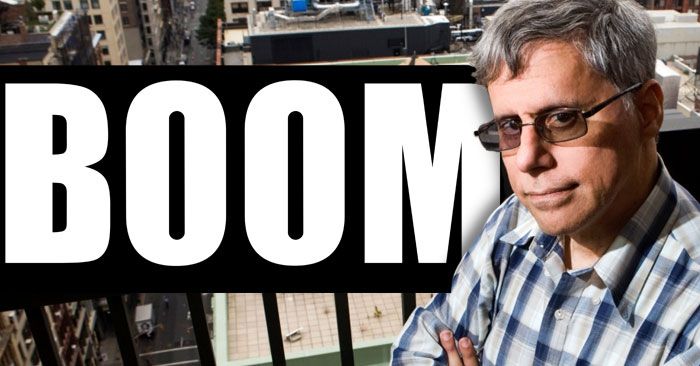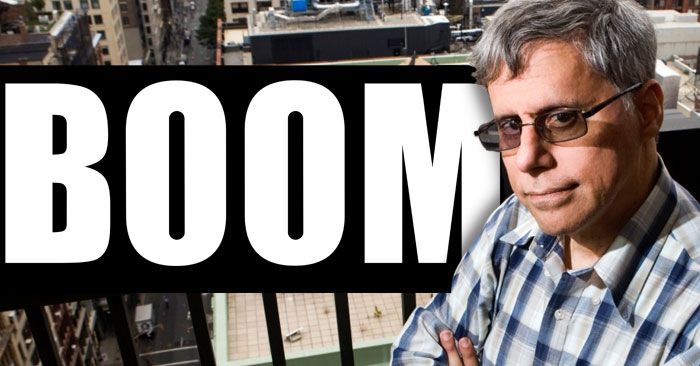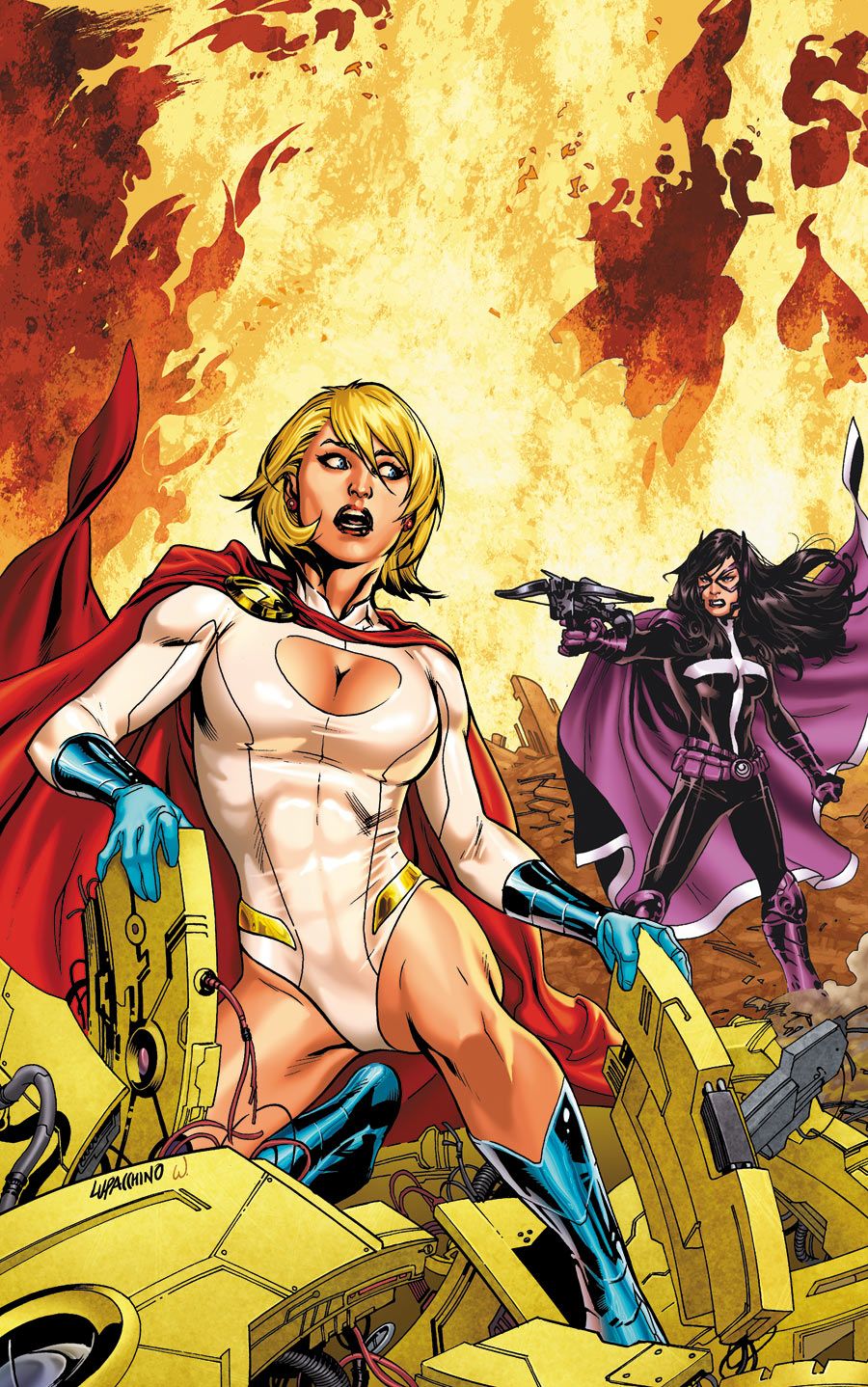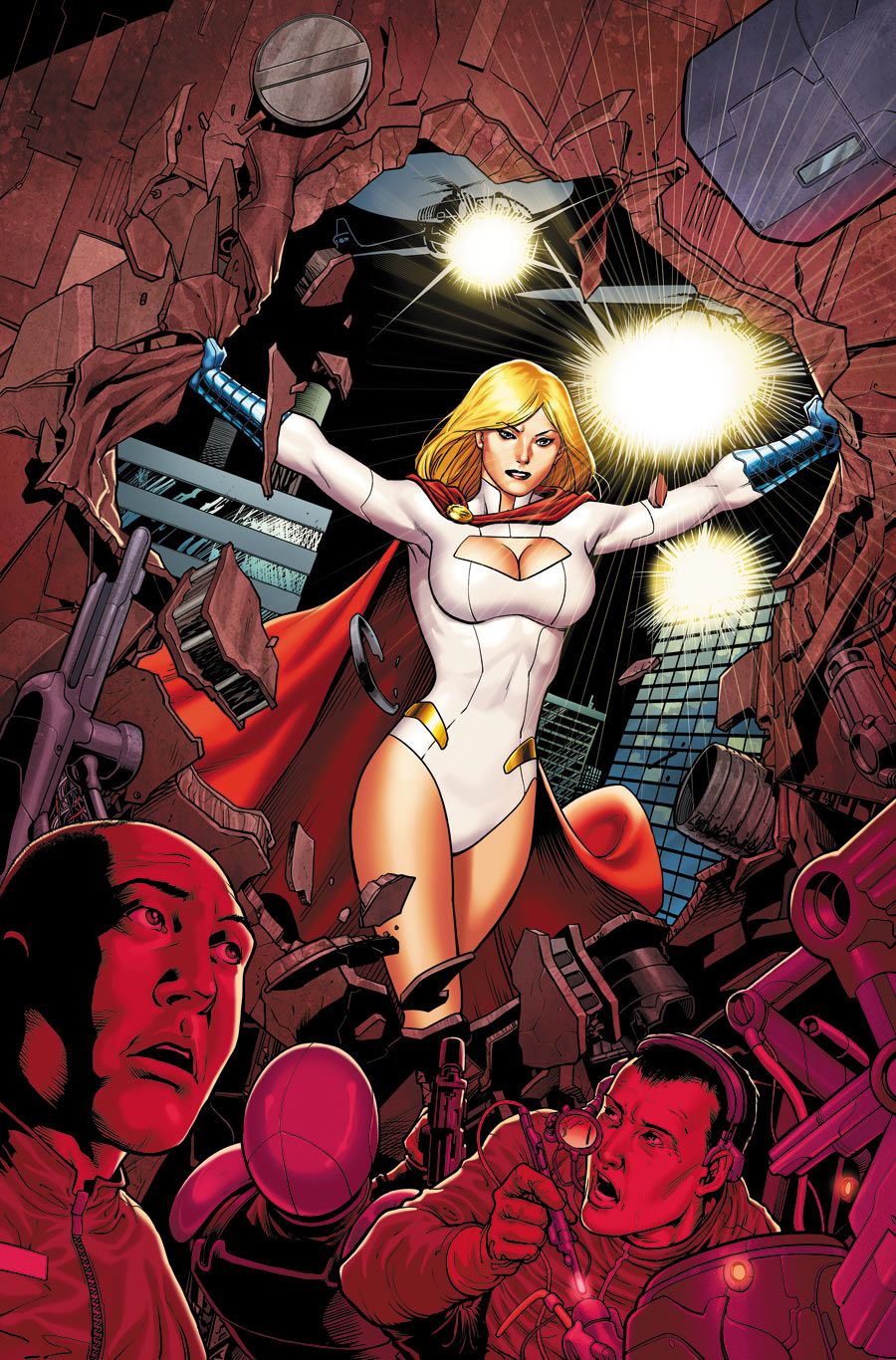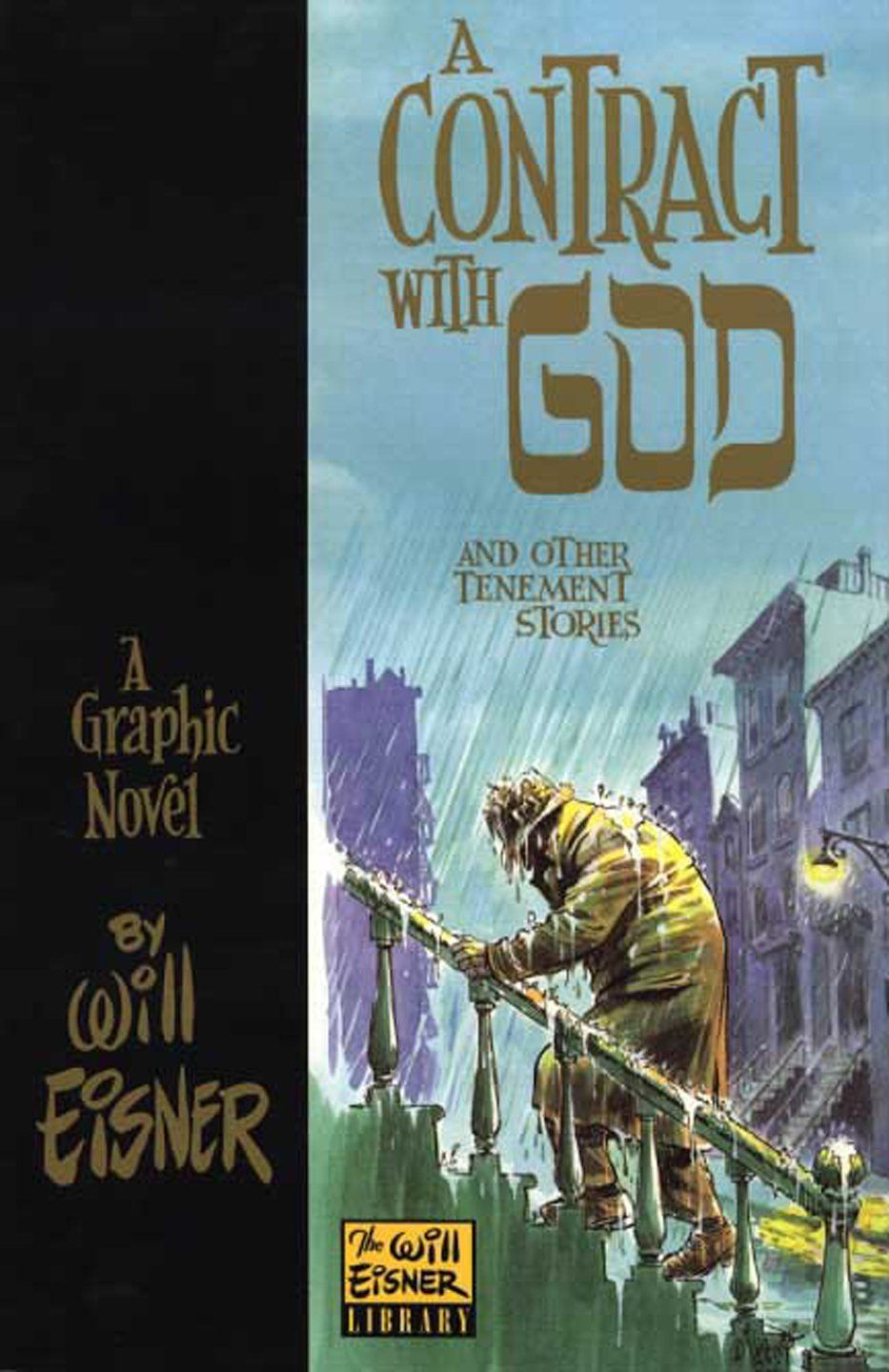There are few individuals working in the comics industry today with more experience than Paul Levitz. With over 45 years in the industry as a writer, editor and executive, Levitz contributed a vast array of content to DC Comics' "Legion of Super-Heroes" mythology in the 1970s, and during his time as an editor at the company, he helped hire fan-favorite and acclaimed creators like Marv Wolfman, Alan Moore, George Perez, Keith Giffen and more. He went on to serve as DC's president from 2002-2009, and currently writes "Worlds' Finest" for the company.
However, Levitz is at least partially dipping his toe back into the executive side of comics, as it was recently announced that he'd joined the board of directors for BOOM! Studios to help shepherd the company into its next stage in development.
BOOM! Adds Levitz to Board of Directors, Confirms Powell on "Big Trouble in Little China"
CBR News spoke with Levitz about the details of his new role on BOOM!'s board, his goals for the publisher, his view of the evolution of the comics industry as a whole and more. Plus, he discusses his work on his upcoming coffee table book on Will Eisner and his experience as President of DC Comics.
CBR News: Paul, tell us a bit about your position on BOOM!'s board of directors. What exactly are your duties and responsibilities?
Paul Levitz: Any board of directors exists both to have a responsibility to the owners and investors of a company and to work with and support the management of the company. BOOM! is a very young company, so it's really a case of helping it grow into what its potential is.
BOOM! has certainly made some major strides as a publisher in recent years, acquiring Archaia and expanding its all-ages line. What appealed to you about the company and made you want to become more involved as an executive?
Well, comics as a field is at a really interesting moment. There's so much new creative excitement going on, there's so many different voices and different flavors beginning to succeed in the market that had not been there ten years ago, twenty years ago. That's been a consistent thing that's fascinated me about the business through my whole career.
BOOM! is, I think, at an interesting place in that evolution. A lot of what they've succeeded with have been things that are distinct flavors. Their execution on "Adventure Time," which is one of their most successful projects, was one of the more imaginative approaches to a kid's license, as well as being one of the more successful ones. Most of my career, the kid space was something that comics was frustrated by, and it's only in the last seven or eight years that started to get some traction again. Of course, that's when my whole generation came into comics, so that's interesting to me.
Some of the new things they're doing with creators look like fun, and the group of people in the place seem to have a sincere energy, and a sincere desire to find new creative approaches and new creative voices out there. There's a lot of opportunity in that mixture.
RELATED: BOOM! Studios Acquires Archaia
You have over 40 years of experience in the industry, giving you the opportunity to really to see it evolve and change. What is it about the industry's progression and evolution that keeps you coming back, not just as an executive, but a creator as well?
One, it's a great medium. To some extent, I guess you could argue that I came into the comics medium very close to its creative nadir in America. It was a point in the mid-1970s where there were only a handful of publishers left standing -- most of them were not daring to do anything new, and they were putting all their energies into survival without a clear battle plan of where that survival could take them or how to get there. Most of the next several decades of my career were devoted in some fashion or another to helping the industry find new models -- the comic shop and appropriate kinds of product formats, pricing, distribution method that could work for that; the graphic novel format in the comic shop, the book store. As each of these forms began to develop, they offered new opportunities for creativity. The field got more exciting for creators -- myself included -- for businesspeople and absolutely for readers.
So, it's been a wonderful journey through all of that. I've been able to see comics change from something very narrow to something that's literally getting broader every day from what you can do creatively to what the audience is. I think we're still very early on that journey. I don't think the story of comics in America is nearly complete.
What was your motivation for coming into the company as an executive rather than a position more involved in the creative process?
I don't want a job. Really, it starts with that as a bottom line. I'm not at a point in my life where I'm ready to put that kind of time and energy -- and it's a great time to be an editor in comics. It's a great time to be developing projects and new creative material, but it's a full-time job. I've been teaching in the last several years since leaving the executive desk. I spend about half my time doing that, I find it very rewarding.
I want time to do my own writing, both in comics and in prose -- and there's no way to be a good editor and not be there to answer the phone when your talent calls.
Jumping back to your position on the board, what are your long-term goals for your time in the position -- not just for the company, but personally as well?
For the company, the goals will be shaped by the whole board and the people that actually run the company. I just get to be a voice in that process, and I hope it's a constructive voice. In particular, I think my goal for my contribution would be to provide a point of view that you can only have by living through decades of evolution of an industry and an art form. I've seen every variation done in all those years, and I've participated in so many conversations -- whether around my poker table decades ago or in the DC offices or at a convention bar -- about what comics could be. So, offering whatever I've learned from that, whatever I can bring to it, is the goal for me sitting in that room, metaphorically.
For me, it's about leaving the place a little better than I found it. Can I make a difference, can I be helpful in the process? Can I have contact with it that keeps me fully engaged with the field? I've been actively engaged with the world of comics since I was 14 years-old and doing the fan-zines. I love the field, I love the people. It's the nature of any field that if you're not active, you drift out of sight. "I've been meaning to call my friend who I haven't seen for a couple of years, but I have to go deal with the groceries." If you're actively engaged, then you have reasons both to be connected to the people who you've worked with before and equally interesting, you have a reason to meet and understand people and trends that you weren't involved in before. I don't think I'd be likely to be reading "Adventure Time" absent the connection to BOOM! or a connection to some other comic company that said, "Hey, those guys have this 'Adventure Time' thing that seems to be working. What could we do like that?" You need a reason to stay connected.
In terms of staying connected, you've stayed on the radar not just for the managerial side of the industry, but also as a writer for DC Comics. Will your position at BOOM! conflict with your ability to contribute as a writer at other companies?
It certainly doesn't from BOOM!'s standpoint. I hope to be writing for DC as long as they'll have me. Some of my other friends in the industry have been waiting for a number of years for me to get off my duff and do something for them. I certainly help to be able to fulfill some of those old promises soon. My schedule is fairly full, but I've owed [Dark Horse Publisher] Mike Richardson a story for a long time now, and I certainly intend to deliver on it.
The State of BOOM! with Filip Sablik & Matt Gagnon - Part 1
In terms of other projects you have in the pipeline, you're working on a biography of Will Eisner -- the second nonfiction book you've had the opportunity to write. Do you plan to expand your work in the nonfiction realm with other projects?
Well, it's not exactly a biography of Will -- there are elements of that, but there are two solid biographies of him that already exist. It's a coffee table book, so it's full of his art and his work, which is wonderful, but it's also an exploration as to why Will was important to the evolution of the graphic novel. "Contract With God" is not the first graphic novel, it's not the first modern American graphic novel -- it's certainly not the most successful graphic novel in the history, but it had a pivotal moment. More importantly, maybe ultimately in the book itself as a singular piece of work, Will had a long, long moment. The working title of the book at this point is, "Will Eisner: Champion of the Graphic Novel," because I really think it's his role as a champion, as an evangelist of the form that in some ways is more important than his amazing work as a creative person himself. I try to explore those issues. The book is now planned for next year, not this year as schedules have shifted, but I think it'll be a lot of fun.
As for why non-fiction, I know how to do it. In a sense, for me, it's a direct evolution of doing fan-zines as a kid -- having learned to write a lot better as a kid. I learned to research. It ties into my teaching and how I've thought about all these fields. The Eisner book in part relates to a course I've co-taught at Columbia about the American graphic novel. I'll be co-teaching it again this fall. There's a real synergy in all of that. Would I like to do prose fiction? Yeah, I'd like to do that at some point. That's an even more gigantic leap than what I've done before in my career, and when the time comes, we'll see if I can actually pull it off.
You were president of DC Comics from 2002-2009. How do your duties on the board compare to your duties as president?
They're as completely unrelated as you could get!
[Laughs] Well, I know that DC was a full-time job for you, and your goal is not to have a full-time job on the board at BOOM! -- but that said, are there any similarities between the two positions at all?
As work? No, I don't really think so. The role of a company's active day-to-day leader is a very intense thing. It's totally involved, not only in the long-term plans of the company, but the day-to-day problems, its approvals, dealing with the corporation -- and DC, of course, had such a wonderful and astounding range of projects that I had the joy of working on everything from the comics to the movies to the toys -- whatever came across the desk on a particular day.
This is a much narrower role. I'm going from a job that was more than full-time to a job that is, if you bunched it all together, a couple of weeks of the year.
You're teaching, you're serving on BOOM!'s board and you have your own creative projects. What other creative projects do you have on tap moving forward?
Right now, I'm writing "Worlds' Finest" for DC and working on the Eisner book. At the moment, I've been in the middle of clearing the illustrations for it, all the muck work that goes into putting a project like that together. I just finished a month ago my work on the new edition of the first college textbook for comics, "The Power of Comics" written by Randy Duncan and Matt Smith. They invited me on as the third author for the second edition, so I got to write a little part of that book and rewrite some other stuff. That was a hoot and a half to get to write a college textbook.
Winding down, where would you like to see BOOM! in five years as someone on the board of directors with a vested interest in the company?
Healthy. Successful. A meaningful creative force in the comics business. With BOOM!'s distinctive interest in film and television, I would hope they have a meaningful flow of media projects based on their properties. They had great success, obviously, with "2 Guns" last year, something that the company's putting a lot of energy into going forward, so I wish them to have real success in that. That's a challenging area, obviously, but a wonderful one that's available to comic companies today.
As for exactly what the rest of the shape is, way too soon for me to know. Give me at least a few board meetings.
Anything else you're up to these days?
I guess the only other major activity is that I'm continuing to work on the board of the Comic Book Legal Defense Fund, one of the great institutions of our field. I'm very happy to serve on that board. I feel like I've made a contribution to comics that way as well. That's partly a model for me, too. That's an example of how without being involved in the day-to-day process, I could make a contribution to it.
Stay tuned to CBR for more on Paul Levitz' projects and the future of BOOM! Studios.

